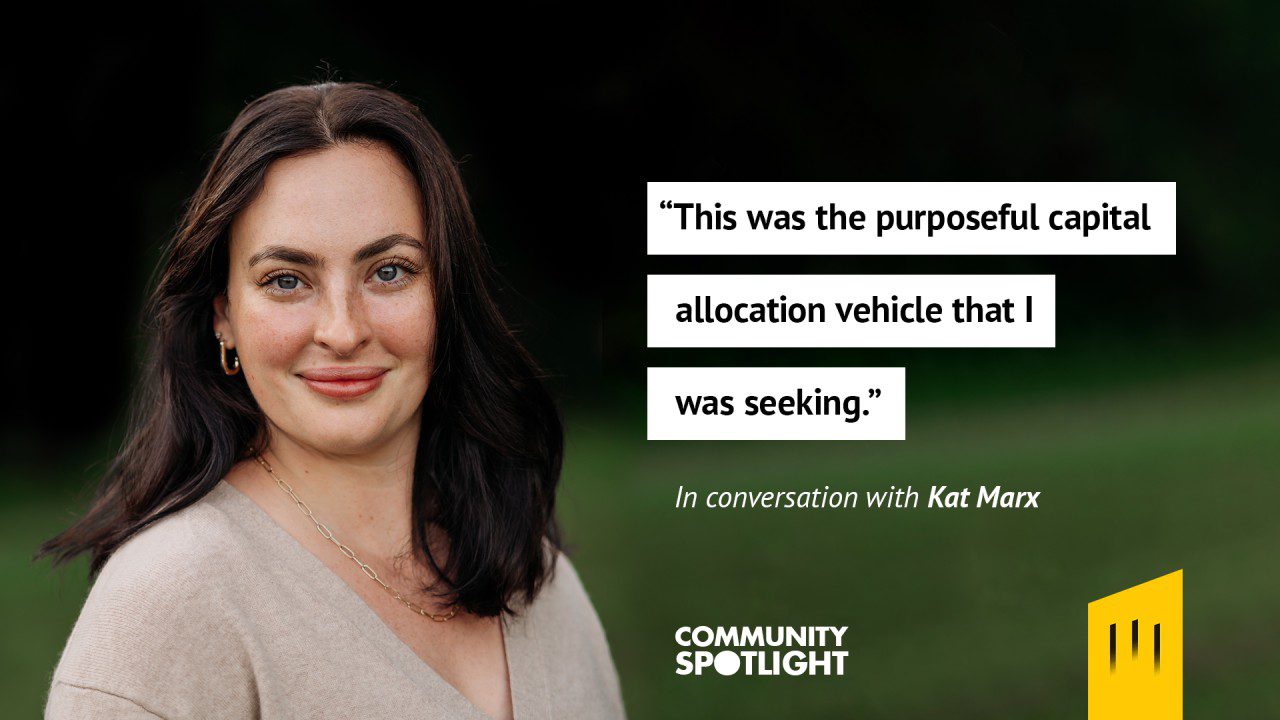Katherine (Kat) Marx, founder and managing partner at Michigan-based search fund kinesis growth partners, is on a mission to acquire a site-based healthcare company in the US by August 2025.
Sneak peek at Kat’s origin story: Kat attended the University of Michigan where she majored in Sociology, with a focus on law, justice and social change, and minored in Entrepreneurship. That is when she was first introduced to the finance industry through a venture capital lens, immediately thinking: “Investing and capital allocation sounds pretty interesting and like a good way to create meaningful impact.” She parked the idea for a few years, focusing on her passion of helping adults with developmental disabilities, while also taking on the role of corporate access and marketing associate at a full-service boutique investment bank. She then obtained an MBA at USC Marshall concentrated in Finance, where she got exposed to the search fund model. Throughout the following years, Kat worked for Athenaeum Partners, fintech startup Wedo, and a Los Angeles-based EV infrastructure startup, before taking the plunge and launching her own search fund kinesis growth partners.
🫡 Fun fact: Kat has a chauffeur’s license to drive a 12-passenger handicap van, and also coaches Special Olympics softball, poly hockey, and basketball.
MC: How did you find that sweet spot between finance and human development?
KM: When I served as a corporate access and marketing associate at an investment bank, being in that environment and assisting in every component of M&A transactions inspired me to keep walking down this finance path and ultimately look for opportunities to work in M&A. I needed to find out what that looked like for me. I knew I wasn’t very comfortable in the traditional financial services setting. I do have an entrepreneurial spirit and want to do things with a lot of intentionality. However, sometimes traditional financial services are just very focused on generating return for a firm or a group of individuals. Accordingly, it didn’t feel connected enough to my personal purpose. When I learned about the search fund model, I felt that this was the purposeful capital allocation vehicle that I was seeking. So, kinesis growth partners is the amalgamation of my qualitative and quantitative skills, and what I care most about.
MC: What kind of business are you searching for when you say “site-based healthcare company”?
KM: I’m looking at care-based businesses, most specifically behavioural health businesses and businesses that serve people with developmental and intellectual disabilities, since that is what I care the most about. It’s very easy and authentic to strike up a conversation with an owner who works with this population, since I’ve extensively worked in that field as well.
MC: What challenges do you face when searching for these companies?
KM: The main challenge I’m facing is meeting businesses that are too small to meet the suggested minimum EBITDA of traditional search funds of USD 1-5 million. They may be close, but a lot of the ones I talk to are in the USD 300,000-500,000 EBITDA range. I still love meeting them because they may grow quickly during my search to meet the minimum requirement, or they could be a good add-on acquisition for the company I will later choose.
MC: You rarely find female searchers in the space today, but it seems like there is currently a shift towards that. How have you felt as a female searcher on your journey?
KM: I knew what I was getting into when I first decided to enter the search fund space. There is so much room for diversity in the space, and it doesn’t make sense that there are a handful of institutions turning out very similar searchers each funding year. This was a space where women were underrepresented, but that is actively changing. The fact is that businesses are owned by men and women, and especially in the space I’m searching in, there are a lot of female business owners. My narrative specifically resonates with them.
MC: The search fund landscape has been generally becoming more crowded. How difficult is it to convince a business owner to go for your offer?
KM: Searchers are now bumping into each other in the same proprietary deals, talking to the same companies and brokers, and using the same databases. Ultimately, if the business owner is serious about transacting, they will do that with the person who feels most authentic and sincere. The phenomenal part is that given the rise in the number of searchers, business owners are already familiar with the concept which reduces the learning curve.
MC: How have macroeconomic developments impacted your job as a searcher?
KM: The interest rates on debt that searchers were plugging in a few years ago are totally different than today, which naturally makes the 20-35% return hurdles harder to hit. These returns are attainable, but with a more challenging macroeconomic environment and the flooding of the space, I hypothesize returns will compress. Additionally, I’m keeping my eye on the US’ tumultuous political landscape, and this being an election year, some business owners are actively either trying to sell or hold on to their businesses. They are curious to see how a potential administration change can alter tax events like the sale of a business.

